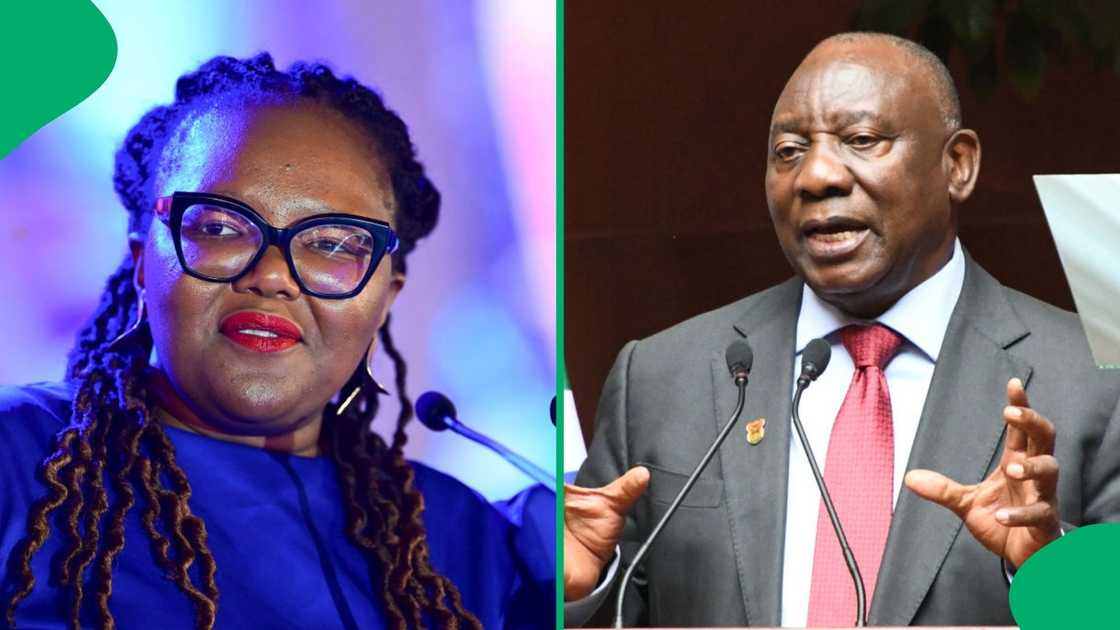South Africa's Education Debate: Minister Gwarube Takes A Stand
- Basic Education Minister Siviwe Gwarube voices her concerns against the Basic Education Amendment Laws Bill.
- With President Cyril Ramaphosa set to sign the bill into law today, Gwarube remains steadfast in her opposition.
- South Africans weigh in on what they perceive as political tensions between the African National Congress and the Democratic Alliance.
Tebogo Mokwena, a seasoned journalist for Briefly News, has spent over seven years covering policy changes, State of the Nation Addresses, and political news in Johannesburg, South Africa. Previously affiliated with Daily Sun and Vutivi Business News, Mokwena brings a wealth of experience to the table.

JOHANNESBURG—The Basic Education Minister, Siviwe Gwarube, has firmly opposed the Basic Education Laws Amendment Bill (BELA) and made the bold decision not to attend its signing ceremony. This move has sparked a lot of conversation and debate across South Africa, as people weigh in on what this means for the country's education system and political landscape.
Gwarube’s Stance Against the BELA Bill
In a recent statement shared by @MDNnewss, Minister Gwarube outlined her reasons for opposing the BELA Bill. She echoed the sentiments of her party, the Democratic Alliance, which has been vocal in its opposition to the current version of the bill. Gwarube believes that the bill, as it stands, could severely impact the education system in ways that are not beneficial for students and teachers alike.
Read also:When Siblings Discover Their Parents Love Letters A Tiktok Hit
Specifically, Gwarube is concerned about certain sections of the bill that she feels need revisiting. For instance, the bill proposes removing the right of school governing bodies at public schools to choose the languages of instruction. Another contentious issue is the introduction of Grade R as a compulsory learning level, which some argue may place unnecessary pressure on young learners. Additionally, the bill grants early childhood development centers the authority to provide Grade R, which could lead to inconsistencies in quality and standards across the country.
For a deeper dive into her full statement, check it out here.
Public Reaction: What South Africans Are Saying
The minister’s decision not to attend the signing ceremony has sparked a lively debate among South Africans, with many chiming in on social media platforms. Below are some of the opinions that have surfaced:
Vusi expressed his thoughts, saying:
“It’s pretty clear she won’t support this. After all, Helen Zille and the DA are opposing the bill!”
LekoloaneManam2 added:
“It’s obvious she’s under the influence of the DA. Can you imagine a minister skipping an event as significant as this, which directly relates to her portfolio? President Ramaphosa needs to reconsider her position.”
Kgadi custy weighed in with:
Read also:Mama Joys Heartwarming Love Story With Papa Joy
“This minister needs to be reassigned. Her actions are speaking louder than her words.”
FootballStage shared concerns, stating:
“This situation is troubling. If divisions start to arise within the government, it’s only a matter of time before reshuffles happen.”
El offered a different perspective:
“This is just another political move by the DA, trying to make a statement.”
Cyril Ramaphosa Moves Forward with NHI Bill
In related news, President Cyril Ramaphosa has signed the National Health Insurance (NHI) Bill into law, despite strong opposition from both the private sector and the general public. Critics argue that the country's healthcare infrastructure is not yet robust enough to handle such sweeping changes. This signing has further fueled discussions about the government’s readiness to implement large-scale reforms, especially in critical sectors like health and education.
As South Africa continues to navigate these complex legislative waters, the coming months will undoubtedly reveal how these decisions impact the nation’s future. Whether it’s education or healthcare, the stakes are high, and the eyes of the world are on how South Africa chooses to proceed.

